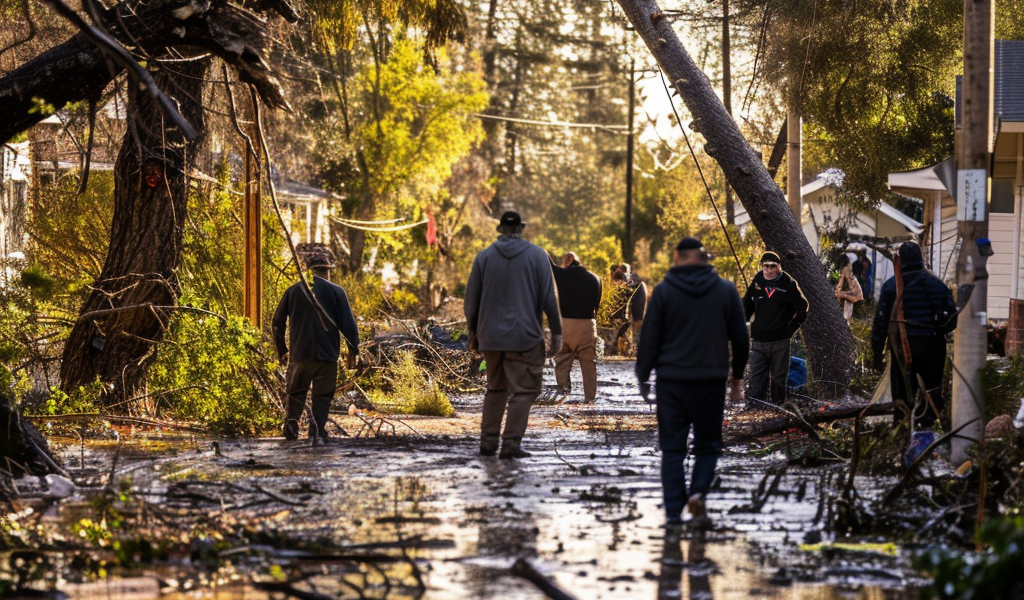As the West Coast grapples with record rainfall and heavy winds, the aftermath of the recent winter storm in California has left many vulnerable to potential scams. In times of disaster, scammers are quick to take advantage of those in need, preying on individuals seeking assistance with fallen trees, water damage, and power restoration.
With the looming threat of post-storm scams, it is crucial for consumers to remain vigilant and informed about the tactics employed by fraudsters. One common ploy involves individuals posing as repair and cleanup service providers, often making unrealistic promises and demanding upfront payment without providing essential documentation such as licenses, insurance, or written contracts. Consumers are advised to exercise caution and refrain from engaging with such entities.
Moreover, utility imposter scams are rampant during such crises, with scammers masquerading as representatives from utility companies. These imposters may attempt to coerce individuals into making payments through wire transfers, gift cards, payment apps, or cryptocurrency under the guise of equipment repair or replacement. It is imperative for consumers to be wary of such demands and to verify the legitimacy of any requests from utility companies.
Furthermore, it is important to note that the Federal Emergency Management Agency (FEMA) does not impose application fees for its assistance programs. Any solicitation of funds in exchange for securing FEMA aid is indicative of a scam. To stay informed and receive alerts, individuals are encouraged to utilize the FEMA Mobile App and remain cautious of fraudulent schemes.
For comprehensive guidance on navigating weather-related emergencies and avoiding scams, individuals can refer to the resources available at ftc.gov/WeatherEmergencies. Sharing this information with friends and family can also aid in preventing financial losses resulting from fraudulent activities.
In the event of encountering a disaster recovery scam, individuals are urged to report such incidents to the Federal Trade Commission (FTC) via ReportFraud.ftc.gov. By remaining vigilant and proactive, consumers can contribute to safeguarding themselves and their communities from falling victim to deceptive practices.
As the community bands together to recover from the impact of the recent winter storm, staying informed and alert to potential scams is paramount in mitigating financial risks and ensuring a secure path to recovery.





